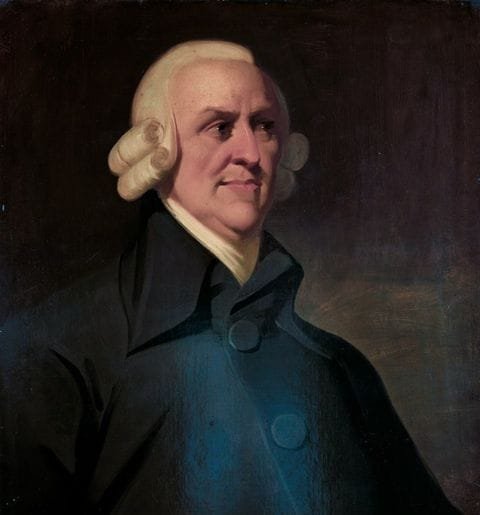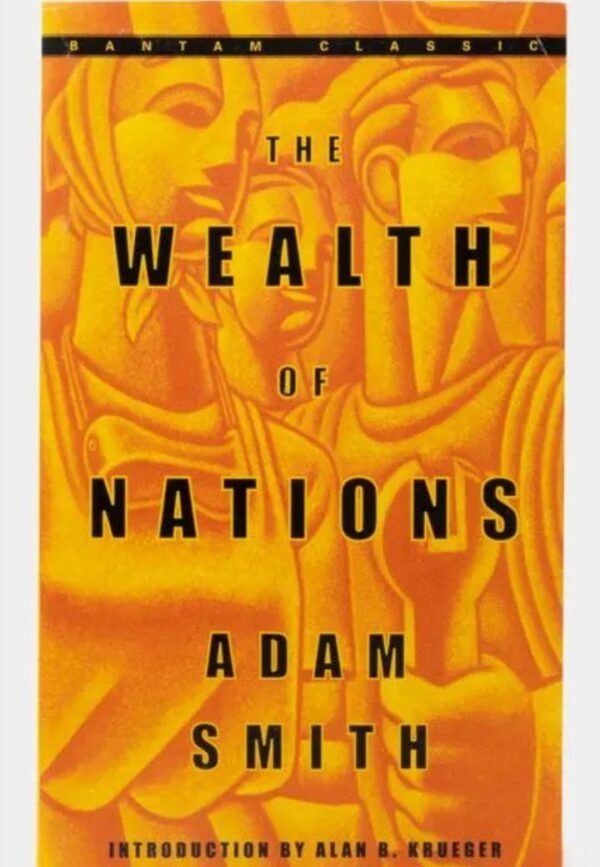
Adam Smith
Adam Smith (baptized June 5, 1723 – July 17, 1790) was a Scottish economist, philosopher, and key figure of the Scottish Enlightenment, often referred to as the “Father of Economics” or “Father of Capitalism.” Born in Kirkcaldy, Scotland, Smith was educated at the University of Glasgow and later at Balliol College, Oxford. He began his academic career delivering public lectures in Edinburgh before securing a professorship at Glasgow University, where he taught moral philosophy.
Smith is best known for his seminal works, particularly The Theory of Moral Sentiments (1759) and An Inquiry into the Nature and Causes of the Wealth of Nations (1776), the latter often abbreviated as The Wealth of Nations. This groundbreaking book laid the foundations for classical economics, introducing concepts such as the division of labor, free markets, and the idea of the “invisible hand,” which suggests that individual self-interest can lead to societal benefits.
His writings critically examined the economic policies of his time, advocating for laissez-faire economics and opposing mercantilism. Smith’s influence extends beyond economics; his ideas on morality and human behavior have shaped various fields, including philosophy and political theory. His legacy continues to impact economic thought and policy today.
- Economics
- 1723
- Male
- 1


